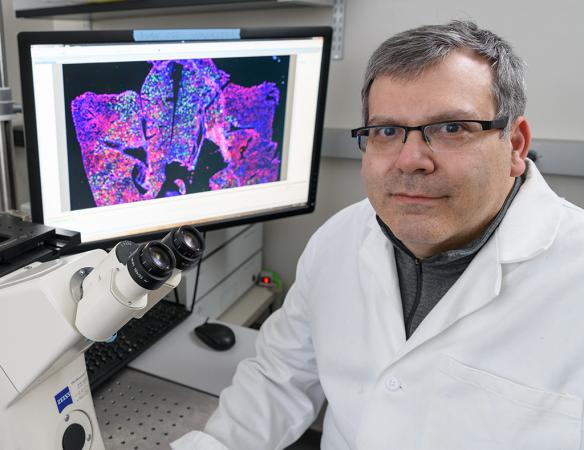Phil Santangelo, professor in the Wallace H. Coulter Department of Biomedical Engineering at Georgia Tech and Emory University, received a National Institutes of Health (NIH) R61/R33 grant valued at more than $800,000 to develop a new, synthetic mRNA-mediated reversible immunocontraception method.
Currently, 72 percent of women who practice contraception use hormonal methods, but there is frequent dissatisfaction with these methods, due to quality of life and safety concerns. “There is a clear need for new approaches to non-hormonal female contraceptives that are easy to use by women, and have a controllable duration of action,” said Santangelo.
His team’s reversible immunocontraception offers a non-hormonal solution, where antisperm antibodies are introduced into the female reproductive tract (FRT) and inhibit sperm function. They have identified an anti-sperm antibody with well-characterized mechanisms of action that impact fertility, and an innovative method has been identified to deliver the antibody to the FRT. They will use a synthetic mRNA-based approach to deliver their sperm agglutinating and mucus trapping antibody to the FRT.
Santangelo’s short-term goals are to optimize the approach, improve their overall understanding of the method and its biological interactions, and demonstrate pre-clinical feasibility. If successful, this method will create a new paradigm for contraception that is non-hormonal, reversible, and easy to use.
Media Contact:
Walter Rich
Communications Manager
Wallace H. Coulter Department of Biomedical Engineering
Georgia Institute of Technology
Media Contact
Walter Rich
Keywords
Latest BME News
Commercialization program in Coulter BME announces project teams who will receive support to get their research to market.
Courses in the Wallace H. Coulter Department of Biomedical Engineering are being reformatted to incorporate AI and machine learning so students are prepared for a data-driven biotech sector.
Influenced by her mother's journey in engineering, Sriya Surapaneni hopes to inspire other young women in the field.
Coulter BME Professor Earns Tenure, Eyes Future of Innovation in Health and Medicine
The grant will fund the development of cutting-edge technology that could detect colorectal cancer through a simple breath test
The surgical support device landed Coulter BME its 4th consecutive win for the College of Engineering competition.
New research from Georgia Tech helps doctors predict how therapies will interact with a child's immune system, potentially improving outcomes and reducing risks.








